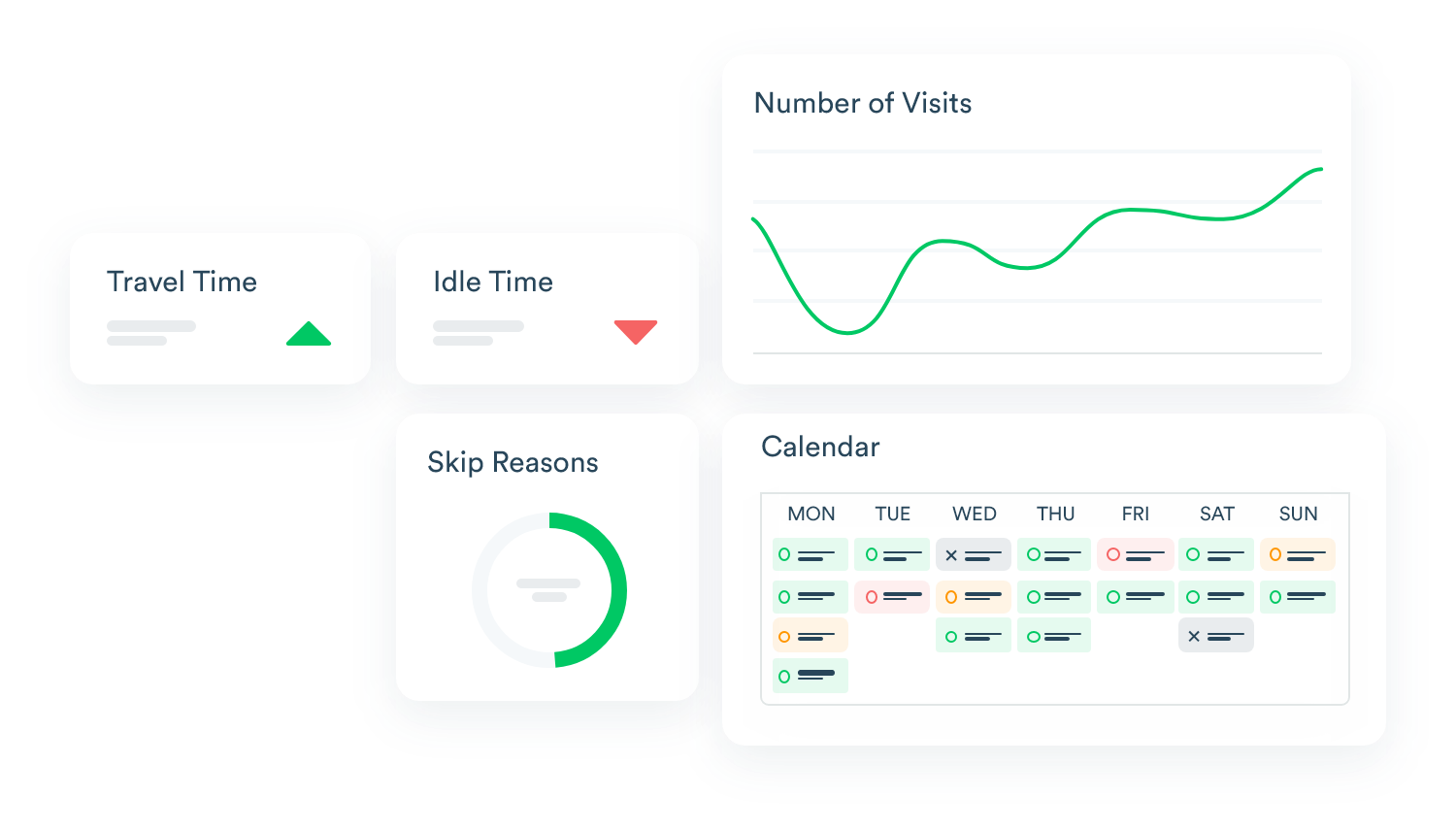AI in Product & Stock Management: Enhancing Decision-Making
In the dynamic world of retail, the inventory stands as the crown jewel of profitable retail execution. Stock management has long been a critical component of business success. From the traditional methods of manual stockpiling to the more contemporary methods of using computerized systems, tracking and managing inventory has always been an intricate dance between supply and demand.
The emergence of Artificial Intelligence (AI) has brought a new era of efficiency and precision in stock management, reshaping the way retailers handle their inventory, and influencing decision-making at every level. This transformation is not merely a surface-level adjustment; it signifies a deeper shift towards a more efficient and customer-centric retail industry.
Read through to understand how AI-powered solutions such as SHELVZ are heralding a new era of efficiency and optimization in the industry’s operations.
The Rise of AI in Product & Stock Management
The modern consumer market is characterized by unpredictable buying patterns, fast-evolving trends, and scores of competitors. In such a landscape, stock and product management are becoming way more than simply storing goods; it’s about predicting and responding to consumer and market needs in a timely and cost-effective manner. AI technology has taken upon itself the mantle of this complex task, offering insights and capabilities far beyond the capability of humans or traditional software.
Globally, businesses are increasingly recognizing the value of AI-driven solutions for their stock management. According to a report by Mckinsey, AI could potentially create between $3.5 trillion and $5.8 trillion in value annually across nine business functions in 19 industries. Among those, stock and product management stand out as crucial fields where AI can make a substantial impact.
It is important to note that this isn’t about replacing human decision-making entirely with bots. Rather, it’s about equipping decision-makers with intelligent tools that augment their capabilities. AI in product and stock management promises a more seamless integration of data analytics, machine learning, and predictive modeling into everyday operations.
AI in Retail — The Foundation of Data-Driven Success
Retail is an industry built on data. The pursuit of customer loyalty and market share has made the ability to gather and analyze data a foundational concept. However, the sheer volume of data available to retailers can be overwhelming without the right tools to sift through it. AI presents a solution, enabling retailers to harness the power of big data in more meaningful ways to deliver customer-centric solutions.
The era of “smart retail” is upon us, and AI technologies are at the forefront. From personalized shopping experiences to demand forecasting, it’s clear that AI is a crucial asset for forward-thinking retailers. Companies like Amazon and Walmart are already leveraging AI to optimize their supply chains, offer tailored product recommendations, and improve the overall shopping experience for their customers.
However, the application of AI in retail is not limited to the e-commerce giants. Smaller and mid-sized businesses are also finding innovative ways to apply AI. This democratization of technology means that AI is no longer a luxury but a necessity for retailers who want to stay competitive.
AI in Stock Management: From Prediction to Precision
The traditional stock management approach often relies on historical data and fixed rule sets. However, the rigidity of such systems can lead to overstocking, understocking, and missed sales opportunities. AI, on the other hand, is both adaptive and predictive. AI algorithms learn from past data but also adjust for real-time information, offering a more accurate and dynamic view of stock requirements unlocking greater supply-chain visibility.
A great example is in-demand forecasting. AI can analyze a myriad of data points such as seasonality, trends, competitor activity, and even weather patterns to make accurate predictions about future sales. This leads to a more efficient use of resources, ensuring that stocks are replenished just in time to meet demand, but not so early as to incur unnecessary holding costs.
Another area where AI excels is in optimizing stock levels. By setting intelligent reordering points and quantities, the risk of stock-outs and overages is minimized. AI-driven systems can calculate these levels by considering lead times, cost of goods, and service level targets, ensuring that the right amount of stock is always available.
The Importance of an AI-Integrated Solution
The benefits of AI in stock and product management are clear — improved forecasting, better demand planning, and optimized stock levels through inventory management. However, the effectiveness of AI is not in isolated systems, but in the integration of AI tools with existing platforms and business processes.
An AI-integrated stock management system is not a standalone solution but part of a larger ecosystem. It should seamlessly integrate with other business functions, such as sales, marketing, and logistics, to provide a unified view of operations. Collaboration between these functions can lead to a holistic understanding of the business and, ultimately, more effective decision-making.
Furthermore, the success of AI relies on the quality of the data it receives. It’s crucial that retailers invest in data collection and management systems to ensure that the AI is working with accurate and up-to-date information. Clean, robust data is the fuel that powers AI, and without it, the insights provided can be misleading.
Overcoming the Challenges of AI Implementation
While the benefits of AI in stock management are clear, implementation isn’t without its challenges. Budget constraints, technological readiness, and employee training are just a few hurdles to clear.
AI adoption must be built on a solid foundation of data quality and integration. Retailers must ensure that systems talk to one another, and that the data feeding those systems is accurate and up-to-date. Moreover, change, especially technological, can be daunting. Retailers must address employee concerns by highlighting the ways in which AI will augment their roles, not substitute them. Finally, AI should be seen as a strategic partner, not just a tool. When retailers recognize the symbiotic relationship between humans and AI, the true potential of this technology can be unlocked.
As with any other technology, being savvy and prepared is key to adopt and properly use new tools. AI is no exception and requires its fair share of effort and commitment.
AI and Stock Management: A Perfect Pair for the Future of Retail
The potential for artificial intelligence in stock and product management is immense, and the technology is only getting more sophisticated. With ongoing progress in machine learning and the accumulation of vast amounts of high-quality data, AI systems are poised to become increasingly proficient at forecasting and adapting to market trends.
In the current retail landscape, businesses are under mounting pressure to enhance agility and customer-centric approaches. Embedding AI within stock management processes will be pivotal in shaping their strategies for the future. By harnessing the capabilities of AI, companies can not only future-proof their operations but also drive profitability and deliver exceptional customer service, ultimately solidifying their competitive edge in the market.
Conclusion
AI in product management is a game-changer for decision making and efficiency. It offers an unparalleled ability to transform product and stock management, guiding managers to make smarter, data-driven decisions.
For decision-makers throughout a company, AI is not just a technological advancement; it’s an indispensable ally. The future of stock and product management is intelligent, integrated, and informed – and it’s being shaped by AI right now.
Adopting AI offers a clear competitive advantage, allowing businesses to stay ahead in retail execution and retail management. By leveraging AI’s predictive power and actionable insights, successful companies are setting themselves apart in an increasingly crowded and complex marketplace. Learn how you can adopt an AI integrated solution by Booking a Demo.



